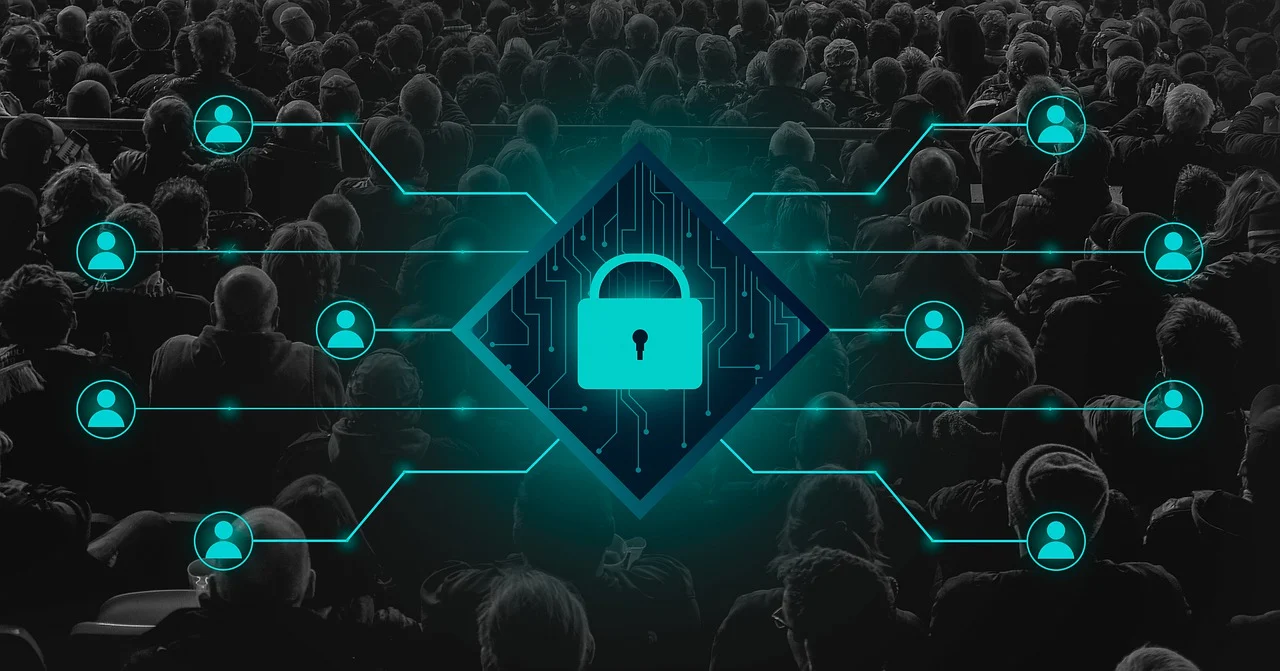Introduction: Step-by-Step Cyber Security Career Plan for 2025
This guide will walk you through a step-by-step cybersecurity career plan for 2025, from foundational learning to specialized certifications and landing your first job. With cyber threats evolving daily, now is the perfect time to arm yourself with the skills and knowledge to protect the digital world and secure your future.
In an increasingly digital world, the demand for cybersecurity professionals has reached an all-time high, and 2025 is set to be a landmark year for those entering the field. Whether you’re a student, IT enthusiast, or professional looking for a career switch, cybersecurity offers a high-growth, high-impact path with global opportunities. But how do you begin? What skills do you need? Which certifications matter?
Your Future Starts Here – Reserve Your FREE Demo Class Now!
What is Cyber Security?
Cybersecurity is the practice of protecting computer systems, networks, digital devices, and sensitive data from unauthorized access, cyberattacks, and damage. It involves a combination of technologies, processes, and best practices designed to safeguard data confidentiality, integrity, and availability (often referred to as the CIA triad). From antivirus software and firewalls to ethical hacking and cloud security, cybersecurity encompasses a wide range of defenses to secure personal, corporate, and government digital environments.
Why Cybersecurity is Important?
Cybersecurity is crucial in 2025 because we rely on digital systems more than ever. With the rapid increase in online transactions, cloud storage, IoT devices, and remote work, the risk of cyber threats is at an all-time high.
Here’s why cybersecurity course matters:
- Protects Sensitive Data: Cybersecurity defends personal, financial, and business information from breaches, identity theft, and misuse.
- Secures Critical Infrastructure: Healthcare, finance, transportation, and utilities rely on secure systems to operate safely.
- Preserves Business Reputation: A single cyberattack can damage customer trust and cause massive financial losses.
- Supports Regulatory Compliance: Organizations must comply with data privacy laws like GDPR, HIPAA, and India’s DPDP Act.
- Promotes National Security: Cyber warfare and espionage threats make digital defense a key part of a nation’s security strategy.
- Enables Safe Innovation: From AI to smart cities, new technologies depend on secure digital ecosystems.
6 Steps to Start Your Cyber Security Career in 2025
Starting a career in cybersecurity in 2025 is a smart move—with digital threats increasing, the demand for skilled professionals is at an all-time high. Here are six essential steps to launch your cybersecurity journey, even if you’re a complete beginner:
Step 1: Learn Basic IT and Networking Skills
Start with the fundamentals—understand how computers, networks, and operating systems work. Learn about IP addresses, protocols, firewalls, and OSI model. Strong IT knowledge is the foundation of cybersecurity.
Step 2: Understand Cyber security Fundamentals
Study core security concepts such as malware, phishing, encryption, authentication, vulnerability assessment, and access control. You can begin with free resources like YouTube or beginner courses on platforms like Coursera or Cybrary.
Step 3: Choose a Beginner-Friendly Cybersecurity Course
Enroll in a structured course such as:
Diploma in Cybersecurity by Craw Security
Certified Ethical Hacker (CEH v13)
CompTIA Security+
These programs offer hands-on labs, mentorship, and industry-recognized certifications.
Step 4: Practice in Real-World Environments
Use platforms like TryHackMe, Hack The Box, and Cyber Ranges to practice what you learn. Simulating real attacks and defenses helps you build confidence and practical skills.
Step 5: Get Certified to Validate Your Skills
Earn entry-level certifications to prove your capabilities to employers. Recommended options include:
CompTIA Security+
CEH v13
SOC Analyst Certification
Certifications boost credibility and open doors to internships and jobs.
Step 6: Apply for Internships or Entry-Level Roles
Start your career by applying for positions like SOC Analyst (Level 1), IT Support, or Cybersecurity Trainee. Even freelance or project-based roles help you build experience and network with industry professionals.
Cybersecurity Career Path in 2025
As cyber threats become more advanced, the demand for skilled cybersecurity professionals continues to rise. In 2025, organizations are not just looking for people who understand technology—they’re looking for specialists who can detect, defend, and respond to digital attacks across all industries.
Entry-Level Roles (0–2 Years Experience)
Start here if you’re new to cybersecurity or transitioning from IT.
- IT Support / Help Desk
Build foundational knowledge in system administration, troubleshooting, and networking. - SOC Analyst (Level 1)
Monitor security events using SIEM tools, respond to basic threats, and escalate incidents. - Junior Security Analyst
Assist with threat analysis, antivirus updates, firewall management, and report generation.
Mid-Level Roles (2–5 Years Experience)
With hands-on experience, advance to more technical or analytical positions.
- Penetration Tester / Ethical Hacker
Conduct ethical hacking to find and exploit vulnerabilities before attackers do. - Incident Responder
Investigate and contain breaches or cyber attacks in real-time. - Threat Intelligence Analyst
Study malware, threat actors, and attack patterns to predict and prevent future attacks. - GRC Analyst
Focus on governance, risk assessment, compliance audits, and regulatory frameworks.
Advanced-Level Roles (5–10+ Years Experience)
Move into strategic and high-impact technical roles.
- Security Architect
Design secure network infrastructures, policies, and access controls. - Cybersecurity Consultant
Provide expert advice to organizations on improving their security posture. - Cloud Security Engineer
Implement and manage security for cloud platforms like AWS, Azure, or GCP. - Red Team / Blue Team Specialist
Offensive (Red) and defensive (Blue) cybersecurity operations in real-world simulations.
Leadership Roles (10+ Years Experience)
Focus on organizational strategy, policy, and team leadership.
- Cybersecurity Manager
Manage security teams, policies, and incident response plans. - Director of Cybersecurity
Oversee cybersecurity operations and align security with business objectives. - Chief Information Security Officer (CISO)
Lead the organization’s cybersecurity vision, compliance, and risk strategy.
Specialization Tracks (Choose Based on Your Interest)
- Ethical Hacking—Offensive security, bug bounty, vulnerability testing
- Cloud Security—Secure cloud platforms and architectures
- Digital Forensics—Investigate cybercrime and collect legal digital evidence
- GRC & Compliance—Manage data privacy, compliance audits, and regulatory needs
- Malware Analysis—Reverse engineering malicious software to understand behavior
What is the Difference Between Information Security vs. Cybersecurity?
Information Security
- Information security (often referred to as InfoSec) is a broad discipline focused on protecting all forms of data—whether digital, physical, or even verbal. It ensures the confidentiality, integrity, and availability (CIA) of information across all mediums. InfoSec includes physical security measures (like securing file cabinets), administrative controls (such as access permissions and policies), and technical controls. Its primary goal is to prevent unauthorized access, disclosure, or destruction of information, regardless of where or how the data exists.
Cybersecurity
- Cybersecurity, on the other hand, is a subset of information security that specifically deals with protecting digital systems, networks, programs, and devices from cyber threats. It focuses on safeguarding IT infrastructures from hacking, malware, phishing, ransomware, and other online attacks. Cybersecurity involves technologies like firewalls, intrusion detection systems, encryption protocols, and endpoint protection. The goal is to protect the digital environment from unauthorized access, disruption, or manipulation.
Make Yourself More Valuable with a Cybersecurity Specialization
In 2025, general cybersecurity knowledge is no longer enough—employers are actively seeking professionals who specialize in key domains. Specialization not only helps you stand out from other candidates but also positions you for higher-paying, advanced roles. Once you’ve gained foundational knowledge, it’s time to choose a cybersecurity path that aligns with your strengths and career goals.
Top Cybersecurity Specializations to Boost Your Career in 2025
1. Ethical Hacking & Penetration Testing
Ethical hackers think like attackers to discover vulnerabilities before real hackers can exploit them. This specialization is ideal for those who enjoy problem-solving, coding, and offensive security.
2. Security Operations Center (SOC) Analyst
SOC Analysts are the first responders in cyber defense. They monitor threats, analyze alerts, and help protect an organization in real time. This is one of the most in-demand entry points into cybersecurity.
3. Digital Forensics & Incident Response
This specialization focuses on investigating cybercrimes, collecting digital evidence, and responding to breaches. It’s perfect for those who love investigation and detail-oriented work.
4. Cloud Security
As businesses move to AWS, Azure, and Google Cloud, protecting cloud environments is essential. Cloud security specialists handle identity management, access controls, and threat detection in the cloud.
5. Governance, Risk & Compliance (GRC)
GRC professionals ensure that an organization adheres to cybersecurity laws, frameworks, and risk policies. It’s ideal for individuals interested in cyber law, compliance, and policy-making.
6. Malware Analysis & Threat Intelligence
This specialization involves reverse engineering malware, analyzing threat actors, and identifying attack trends. It’s suitable for those who enjoy deep technical research and predictive defense.
Tools & Skills to Learn Along the Way
- Operating Systems: Windows, Linux (Kali, Ubuntu)
- Networking: Wireshark, Nmap, TCPDump
- Security Tools: Metasploit, Burp Suite, Nessus
- Scripting: Python, Bash, PowerShell
- Cloud Security: AWS, Azure (later stages)
- SIEM Tools: Splunk, IBM QRadar, ArcSight
Frequently Asked Questions (FAQs)
1. What is the best cyber security career path?
Ans: Starting as a SOC Analyst and progressing to Penetration Tester or Security Architect is a great path.
2. Is cyber security a stable job?
Ans: Yes, cybersecurity offers high job security due to growing global demand and digital transformation.
3. Who is eligible for cybersecurity course?
Ans: Anyone with basic IT knowledge, even students from non-technical backgrounds, can start cybersecurity.
4. Is cybersecurity beginner-friendly?
Ans: Yes! It has structured learning paths and beginner-level certifications to help you start from scratch.
5. How to get into cybersecurity in 2025?
Ans: Start with foundational courses, do hands-on labs, get certified, and apply for internships.
6. Is 27 too late to start a career in India?
Ans: Absolutely not. Many professionals switch to cybersecurity at 30+ and succeed.
7. How to start a cyber security career?
Ans: Begin by learning the basics of networking and security, enroll in a certification course, and practice.
8. Which is the best cybersecurity institute?
Ans: The Best cybersecurity institute is Craw Security.
Conclusion
Cybersecurity is not just a career—it’s a mission to secure the digital world. Whether you’re a student, IT professional, or career switcher, 2025 is the perfect time to begin. The demand for skilled professionals is soaring. With proper guidance, hands-on training, and certifications, you can land your dream job in cybersecurity. The only question is—are you ready to defend the future?




